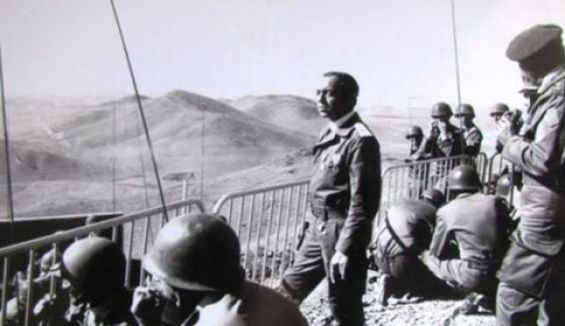The border dispute between Morocco and Algeria dates back to the early years of Algeria’s independence from France. Morocco had demanded that the Algerian government honor an agreement signed by its interim executive.
Shortly before Algeria gained independence on July 6, 1961, Morocco and the transitional government reached an agreement after lengthy negotiations. According to the seventh volume of the «Memoirs of Moroccan Heritage» series, the agreement stated: «The government of His Majesty the King of Morocco will oppose, by all means, any attempt to divide Algerian territory or to seize part of it (…)».
In response, the interim government in Algiers acknowledged that «the territorial problem resulting from the borders arbitrarily imposed by France between the two countries will be resolved through negotiations between the Moroccan executive and the independent Algerian executive (…)». Additionally, the transitional government clarified that any treaties signed during Franco-Algerian talks would not serve as a basis for determining the border with Morocco.
Both governments committed to forming a «Moroccan-Algerian committee, which will meet as soon as possible to study this problem and resolve it in the spirit of fraternity and unity characterizing the Arab Maghreb».
However, once Ahmed Ben Bella came to power following Algeria's independence, he reneged on the agreement with Rabat. He rejected any negotiations over the transfer of lands «liberated with the blood of the martyrs». For Algerians, these claims were viewed as interference in their internal affairs.
Bilateral relations soon became strained, eventually leading to armed conflict in October 1963, known as the Sand War. The conflict ended with the mediation of the Organization of African Unity (OAU). Both parties signed a ceasefire agreement on February 20, 1964, in Bamako, the capital of Mali.
American Intelligence on the Sand War
In a declassified CIA document entitled «Background of Moroccan-Algerian Border Skirmishes», dated October 29, 1963, the agency provided insights into the Sand War. The document, released on October 8, 2004, described events from a decade before the creation of the Polisario Front.
According to the document, «during France's administration of Morocco and Algeria, successive redefinitions of the administrative line separating the French Moroccan from the French Algerian jurisdiction tended to favor Algeria». Since Morocco’s independence in 1956, Moroccan nationalists had laid claim to large portions of the Sahara.
The document also noted that in 1958, when Algerian rebels operated in this Saharan region, the French and Moroccan forces informally agreed on their respective zones of operation to avoid conflict. This informal agreement extended the French zone of occupation, without legal status, further north and west of previous lines. The Algerians adopted this demarcation, while Moroccans insisted that the original border placed the Hassi Beida and Tanjoub areas within Moroccan territory.
The CIA pointed out that these areas were strategically important as they were situated on the main road linking Colomb-Béchar and Tindouf. Following Algeria’s independence, tensions along the border south of Morocco emerged in mid-1962.
The Moroccan government tried unsuccessfully to persuade President Ben Bella to negotiate these territorial claims, but he consistently rejected Morocco's demands. The CIA document explains that Ben Bella's position was reinforced by the OAU. During its inaugural meeting in May of the same year, the OAU «called for adherence to African boundaries as defined by the ex-colonial powers».





 chargement...
chargement...












